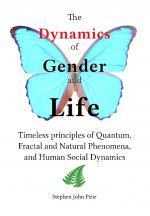In brief:
According to the root assumptions of science — that for each physical effect there is a physical cause — physical movement is theoretically impossible, yet we routinely move our bodies in everyday life. The root assumptions cannot explain, or be precisely correlated with physical phenomena.
In detail:
Correct solutions to Zeno's Paradoxes require that they be fully congruent with observable reality. That is, they are at least not contrary to experimental or physical evidence.
The article "Congruent Solutions to Zeno's Paradoxes" provides an overview of how the evidence of quantum mechanics can be integrated with everyday life to correctly solve the (supposedly perplexing) issue of the paradox of physical motion.
All other solutions that rely on infinite-series (typical of the vast majority of solutions offered in textbooks, universities and the Internet) require the assumption of 'perfect continuity' of space-time and physical motion, an assumption that is not supported by the evidence of quantum mechanics. in fact, if movement were continuous, our whole universe would disappear in an infinite flash of energy. As physicist David Bohm stated: "according to the quantum theory, movement is not fundamentally continuous.". As renowned physicist Richard Feynman remarked over 40 years ago "...that space is continuous is, I believe, wrong.",
"If infinite-series do not predict physical movement in the details, they cannot be used in the details of physical movement."
[Stephen Pirie, July 2011]
In light of the many theoretical advances and experimental results of quantum physics, we can confidently expect that the vast majority of scientific and philosophical opinion on the subject of Zeno's Paradoxes (based on infinite-series solutions which are reliant on the assumption of a continuous space-time) is wrong.
 "The Dynamics of Gender and Life" ebook is now available at
"The Dynamics of Gender and Life" ebook is now available at